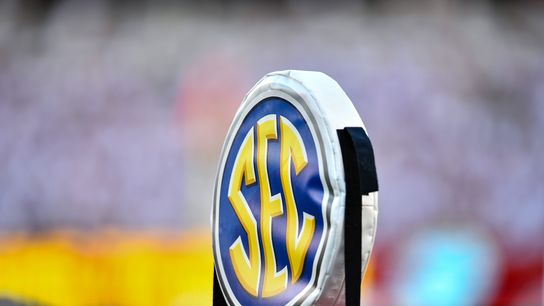The big news on Thursday within the ivory towers of college athletics was the NCAA releasing the findings of its constitution committee survey. Amid the Alston v. NCAA decision in which the Supreme Court unanimously sided against the NCAA's business model -- spoiler alert! -- most people working within college athletics decided not much needs to change.
Meanwhile, on Thursday the SEC announced this:
Following the Supreme Court's decision in Alston v. NCAA, the Southeastern Conference presidents and chancellors have voted to confirm that each SEC member university now has the discretion to determine criteria and methods to provide education-related benefits and academic achievement awards to their student-athletes, consistent with the Court's recent decision.
The Alston decision granted universities the opportunity to provide student-athletes with additional education-related benefits such as computers, science equipment and musical instruments, along with direct financial support in the form of academic achievement awards, up to the legally established maximum of $5,980 per year.
In layman's terms, SEC schools can now spend up to $5,980 per year per student-athlete on academic equipment or cash -- "direct financial support" -- for obtaining academic achievement awards. What are the criteria for said awards? That's up to each school. See below.
While the Alston decision allows individual conferences to set limits on the new educational benefits, the SEC's presidents and chancellors have elected not to place additional constraints on Conference members in determining how to provide this new support to their student-athletes. The unanimous vote by the SEC's presidents and chancellors was an approval of a recommendation from the Conference's athletics directors.
Key phrase: "(T)he SEC's presidents and chancellors have elected not to place additional constraints on Conference members in determining how to provide this new support to their student-athletes."
The Supreme Court ruled by unanimous decision in June that conferences could award up to $5,980 in "academic awards" or the equivalent -- paid post-graduate internships, scholarships for graduate school, tutors, laptops, science equipment, musical instruments -- for football and men's and women's basketball players.
The SEC thus far is the first conference to make a formal movement following that ruling.
The move, of course, comes in a time where athletes can earn an unlimited amount of money through third-parties following a change in the NCAA's NIL policy. But now all 14 SEC schools are free to provide each football and basketball player a guaranteed revenue stream through cash or its equivalent.
"The presidents, chancellors and athletics directors of our 14 universities have determined it is appropriate for SEC athletics programs to have discretion and flexibility to provide support for student-athletes in their academic and athletic endeavors," said SEC commissioner Greg Sankey. "While the Alston decision invited individual conferences to impose limits on education-related benefits and academic awards, the SEC believes it is in the best interests of our student-athletes for these decisions to be made at the campus level rather than through Conference policy."
